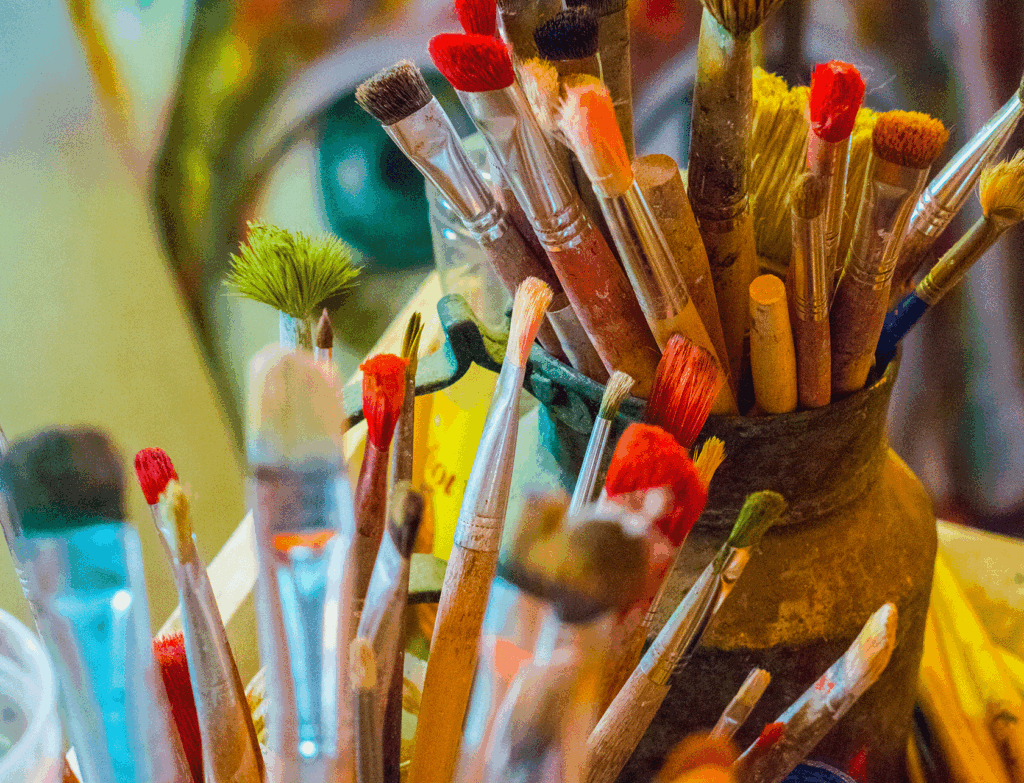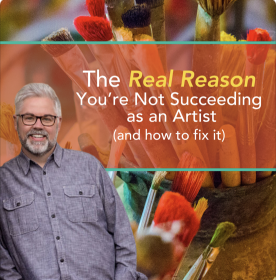Have you ever struggled with selling your art in your local area? Lots of artists do. I’m going to talk about some solutions that will work for you no matter where you live on this episode of 5-Minute Mentoring.
Take a few minutes to listen on the app of your choice like ApplePodcasts, Stitcher, Spotify, GooglePlay or online at http://www.MattTommeyMentoring.com/podcast
Ok, enjoy the podcast!
Matt
PS – Did you review the podcast yet? Screenshot the review, post the screenshot to your Instagram feed, and tag @thethrivingchristianartist. Do that, and I’ve got a surprise for you if you do…. #justsayin
PPS – Need help leaving that review – CLICK HERE for the simple instructions on how to leave a review today
Connect with Matt online at www.MattTommeyMentoring.com or on Instagram and Facebook @thethrivingchristianartist
Get encouraged and connect with other artists on the Thriving Christian Artist Facebook Page https://www.facebook.com/thethrivingchristianartist/
Fuel Your Creative Calling with Weekly Encouragement
Join thousands of Christian artists who are growing in faith, creativity, and purpose.
Subscribe to The Thriving Christian Artist Weekly and receive powerful, faith-filled content every week—designed to encourage your heart, spark your creativity, and equip you to walk boldly in your God-given calling as an artist.
? Click here. It’s free. It’s faith-filled. And it’s just for you.
Tell me my friend, does this sound familiar?
You’ve created a significant body of work and have done your best to let the world know you’re open for business, but no matter what you do, you just can’t seem to sell your art locally.
If you find yourself in an extremely rural area, an area that is economically depressed, or an area that doesn’t have an established art-buying culture, then it may be time to face facts. Your local area may not be where your ideal clients, the best buyers for your art, are located.
If this is you, don’t worry. This isn’t the end of your artistic dreams, but the beginning of a new way of thinking about and approaching your art business. And to help you get started, I want to share three ideas that I’ve seen work for artists around the globe.
1. Selling Art is Not the Only Way to Make Money as An Artist
When I first moved to Asheville and started to establish myself as an artist, I discovered that teaching art classes was a great way to augment my art sales. These classes brought in some much-needed income while helping to elevate my status as an artistic professional in my community.
Over the past few years, online courses have come into their own. Even in our currently socially distanced world, it’s never been easier to use what you know artistically to create a great source of income.
2. You Need to Go Where the Fish Are
I grew up in Georgia and learned quite early that if you’re trying to catch fish, you’ve got to go to where the fish are. The same wisdom applies to selling your art. If your local art market is sluggish or non-existent, then it’s time to find out where folks are buying art in your region and your state.
Start with a little online research. Spend some time looking into shows outside of your local area that are a good fit for your work. Then look into the galleries that are attracting the clientele you’re looking to connect with. Once you’ve narrowed down the list, check out these shows and galleries in person. It may mean taking a road trip and getting a hotel. The goal is to find with the Holy Spirit’s guidance, the shows and galleries that are a great fit for your art.
3. Selling Your Artwork Online Is a Great Option
The fundamentals are simple: attract an audience, get their email address, and build a connection over time. It may be a new concept to you, but over the years, I’ve learned that Connection is Key when it comes to growing your art sales. Every successful artist I know cultivates buyers by intentionally and consistently building a connection with their followers.
Now once you’ve built that connection, everything else is quite simple. From processing payments online to worldwide shipping, it’s never been easier to sell your art to a global audience.
Looking for A Blueprint for Success?
Over the years as I’ve developed my own thriving art business and helped thousands of other Christian artists do the same, I’ve discovered there are some key elements you need to be focused on in order to start or grow your art business.
They include things like:
✅ Having a simple, clear pathway for your purpose
✅ Knowing where to focus your time, attention and resources to accelerate growth
✅ Understanding what habits make success easier
✅ Clarifying God’s plan for your life and art
✅ Discovering why people aren’t buying your art
✅ Transforming lookers into raving clients
✅ How to build a personal brand that attracts buyers both online and offline
✅ Knowing the key elements every artist website should have to start making sales
✅ Feeling confident in creating a simple artist marketing plan
✅ Knowing how to handle the business side of being an artist without being overwhelmed
These key elements are the beginning of starting or growing your art business to the next level.
I hope this has been a big encouragement to you. If this article has been a blessing to you, take a moment to share it with a friend.



Leave a Reply